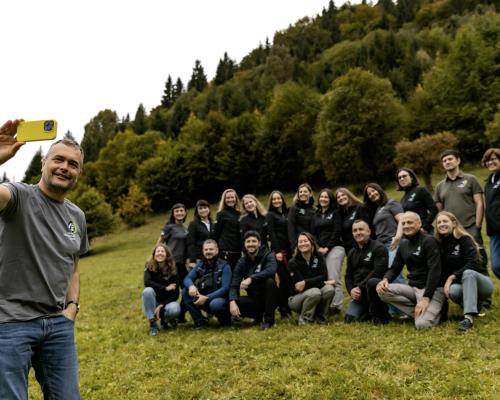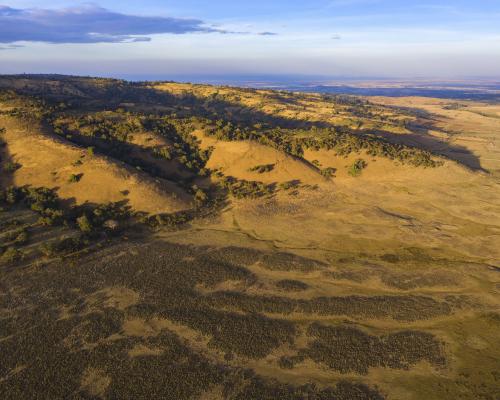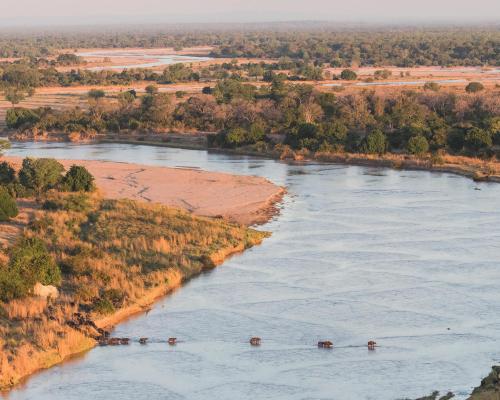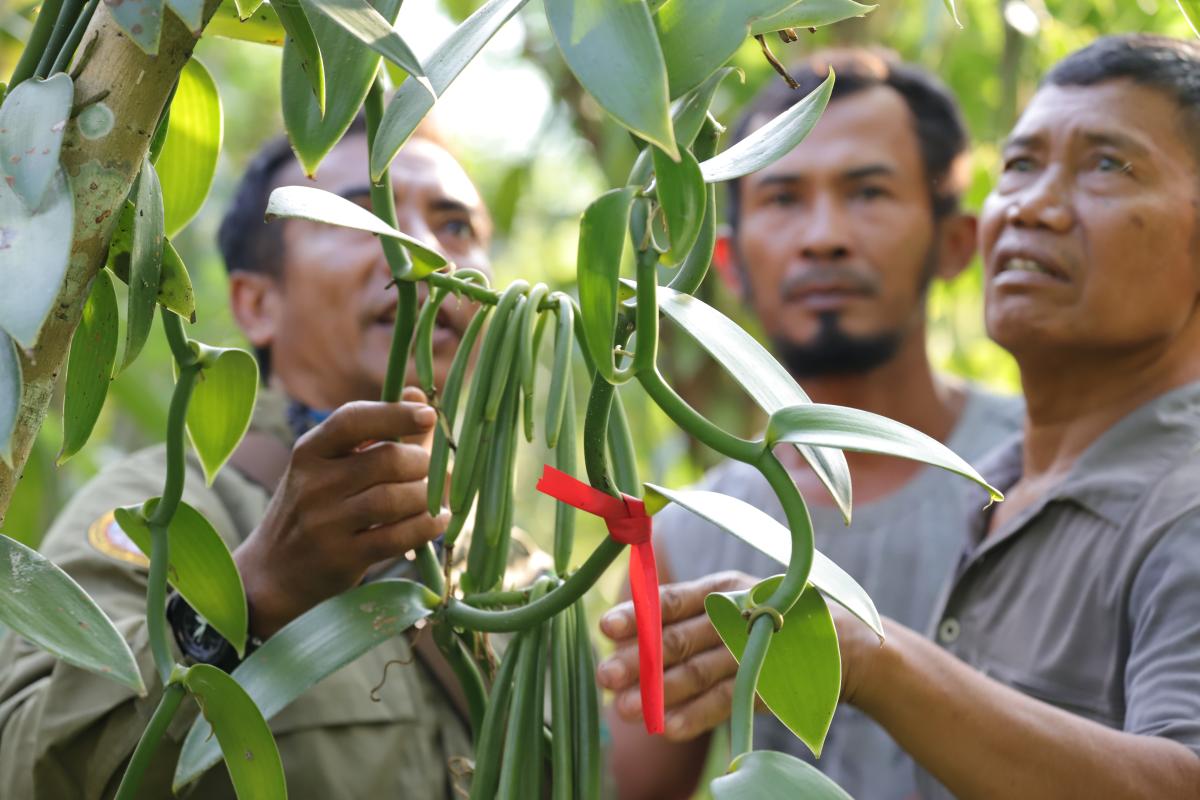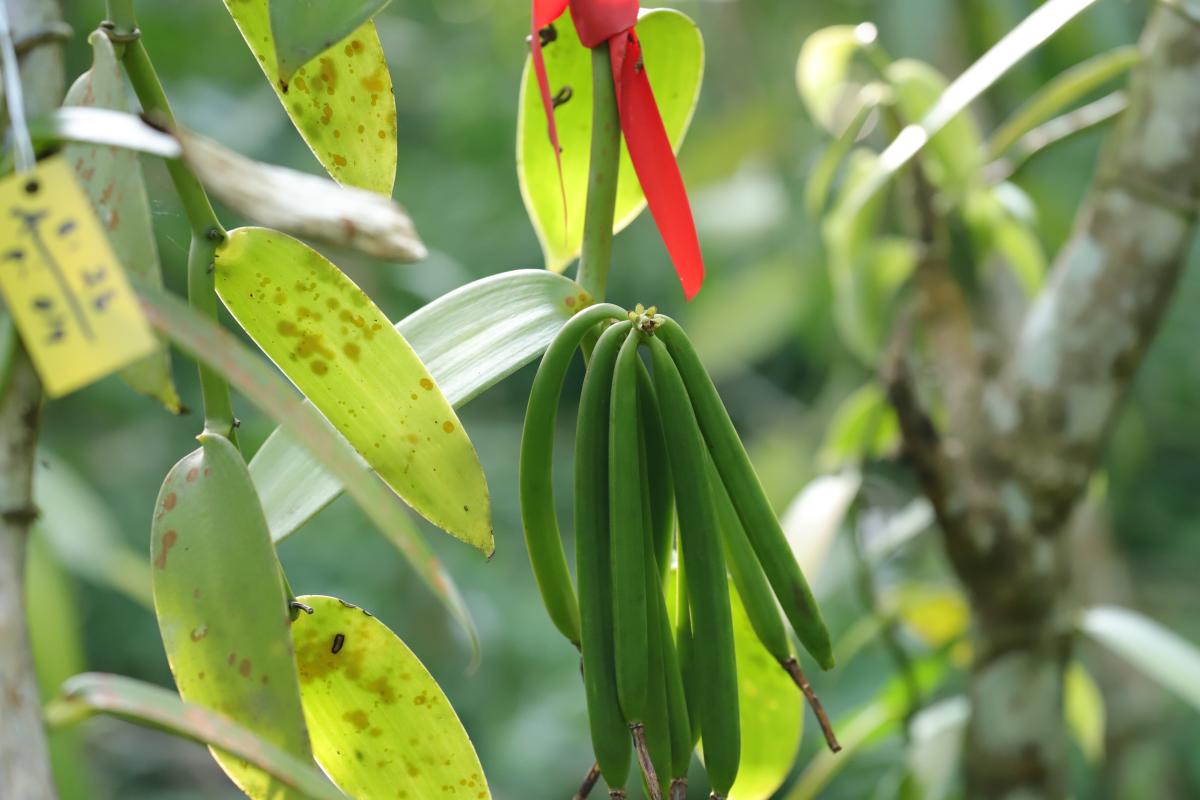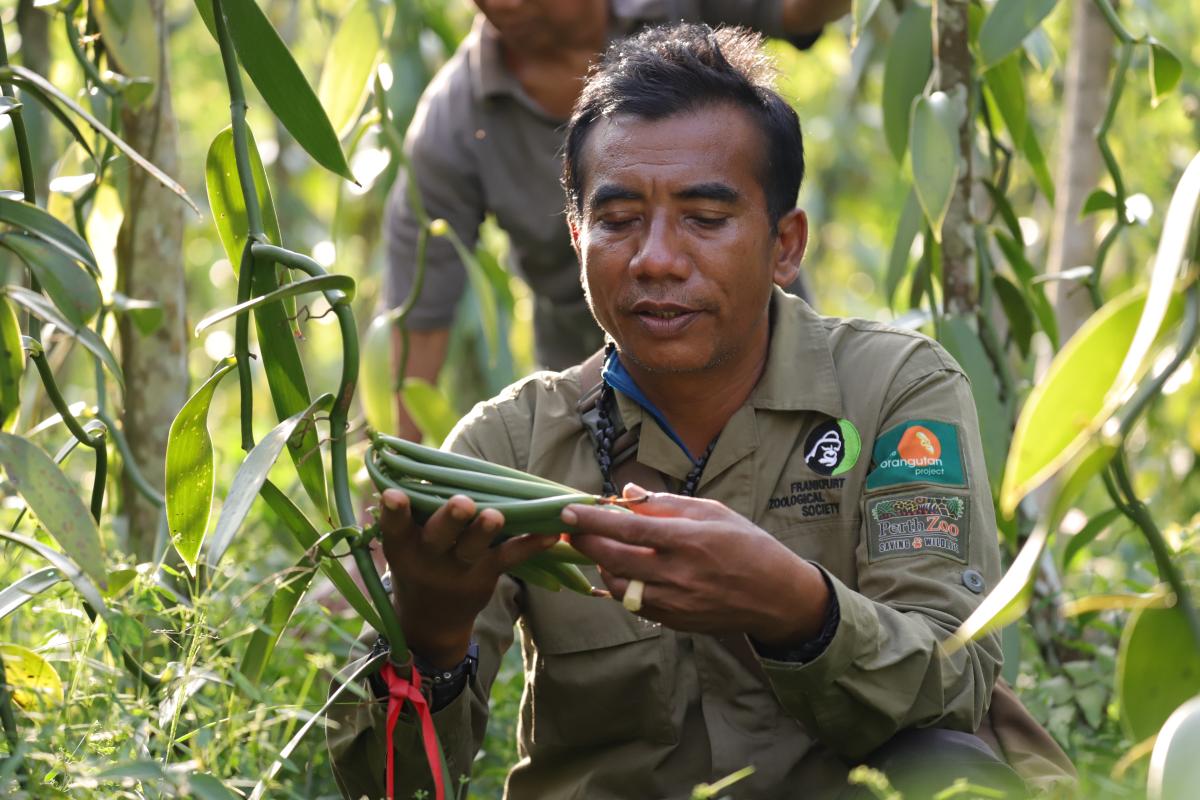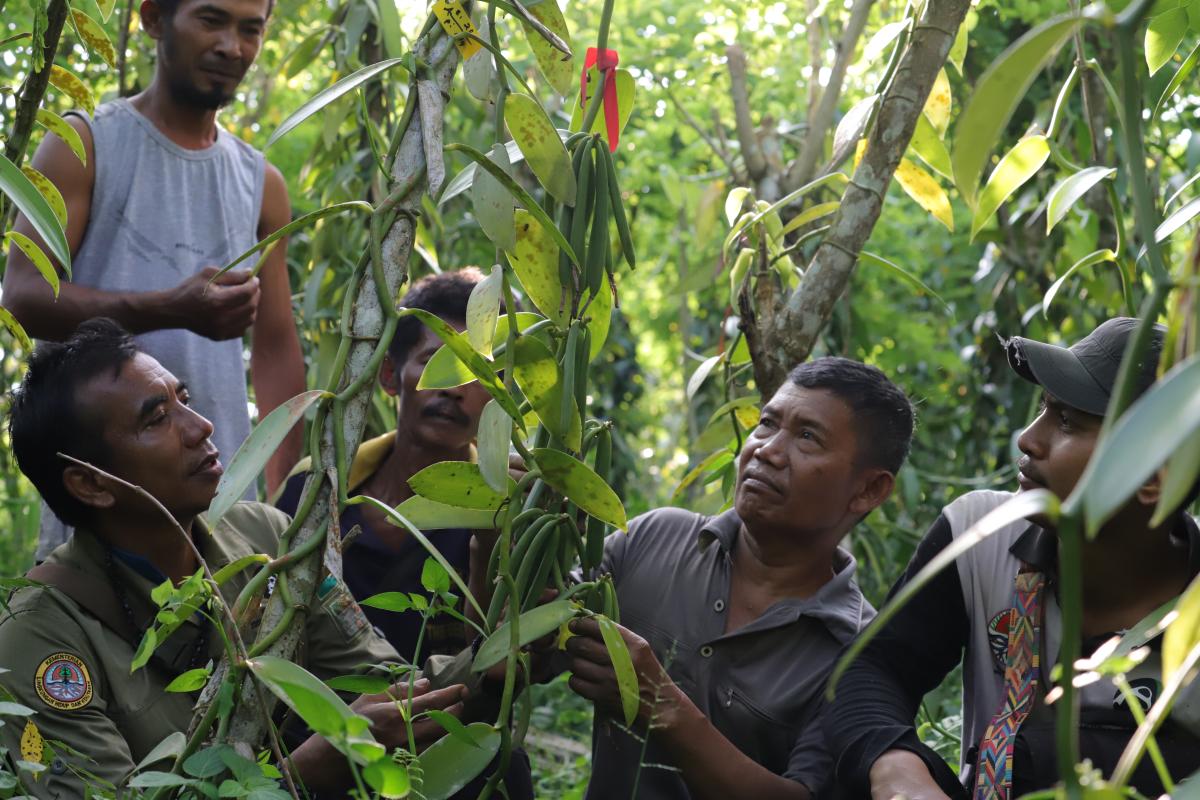In Delima Village, Jambi, a farmer’s group transforms livelihoods and landscapes by embracing vanilla farming. Supported by the FZS agroforestry program, they’ve replaced monoculture oil palms with vanilla now. Beyond income, their efforts restore biodiversity, empower their community, and sustain the Bukit Tiga Puluh ecosystem.
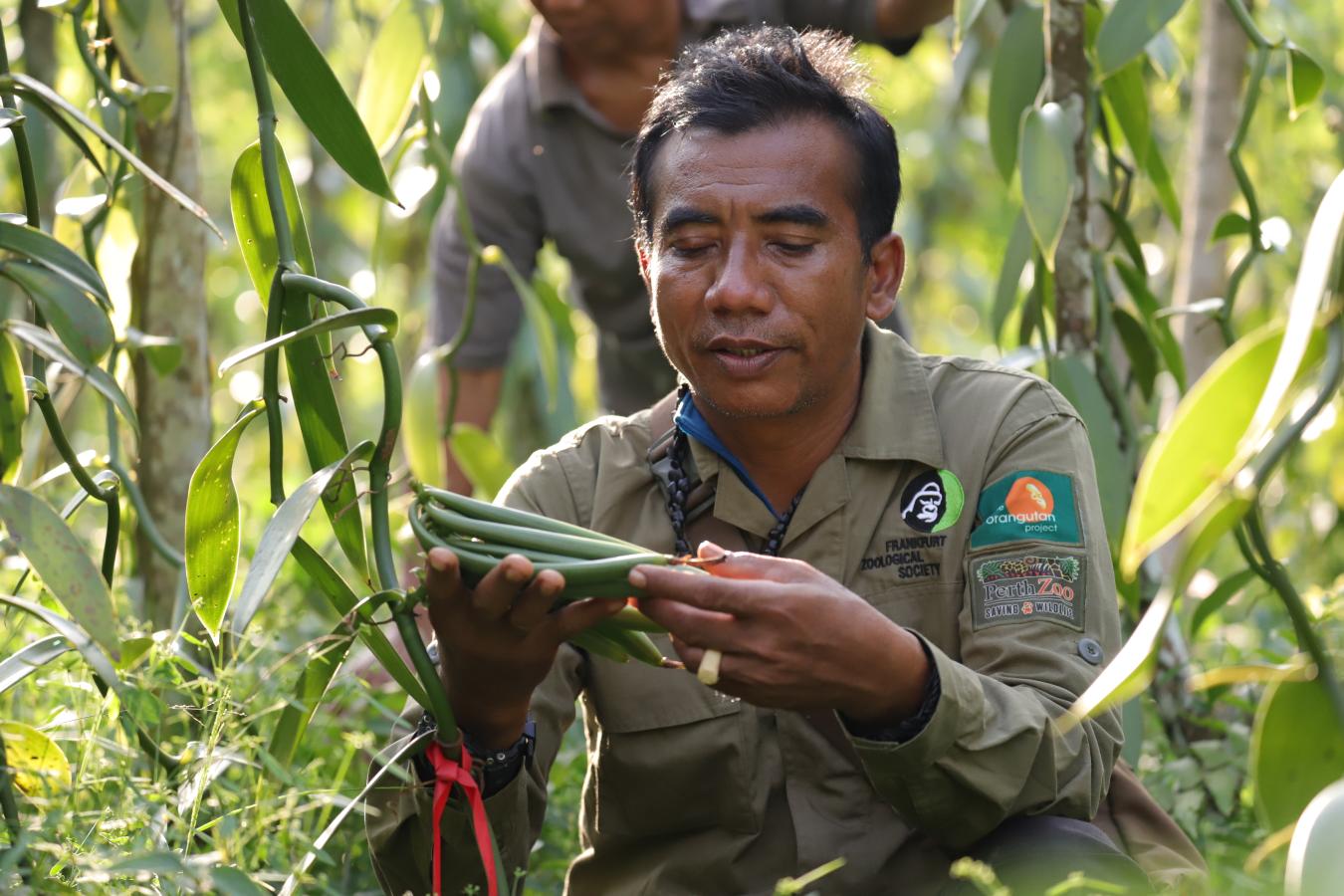
More From Delima Village: Vanilla Agroforestry Gains Momentum
In Delima Village, Pemayungan, Jambi Province, Indonesia, the journey towards sustainable agroforestry is showing promising results. After more than 4 years of dedication, the vanilla program initiated by Frankfurt Zoological Society (FZS)-Indonesia is beginning to bear fruit—quite literally. Among the 3,300 vanilla plants cultivated in the seed orchard, some are now yielding vanilla beans, marking a significant milestone for farmers shifting from palm oil cultivation.
FZS Indonesia has been promoting agroforestry as an alternative livelihood, helping local farmers shift from monoculture palm oil plantations to more sustainable, biodiversity-friendly agricultural practices. This transition is particularly crucial, as Delima Village sits within a primary wildlife corridor in Bukit Tiga Puluh, an area long impacted by palm oil expansion. The adoption of agroforestry plays a vital role in restoring habitat connectivity for wildlife while offering farmers a sustainable alternative.
Paiman, a farmer from Delima Village, has embraced sustainable farming with FZS’ agroforestry program. He transitioned from palm oil and integrated diverse crops, enhancing ecology and income.
In 2021, he planted Gamal trees (Gliricidia sepium) for soil enrichment and shade, then introduced high-value crops like vanilla, coffee, and durian. Despite challenges like soil acidity and pests, he persisted.
The agroforestry program tackled vanilla’s lowland viability by refining soil and shading techniques. By 2021, two production blocks—Agro 1 and Agro 2—were established with 13,000 vanilla seedlings. Despite initial losses, improved methods boosted survival rates.
A key milestone was the vanilla seed orchard, distributing 45,000 seedlings. Experimental efforts produced 1,000 high-quality vanilla beans from 92 successful pollinations. “This small success confirms that the nursery-grown seedlings can produce high-quality vanilla beans, reinforcing confidence in the agroforestry approach,” says Dr. Peter Pratje, FZS Indonesia’s Country Representative.
This small success confirms that the nursery-grown seedlings can produce high-quality vanilla beans, reinforcing confidence in the agroforestry approach.
Delima Village exemplifies how agroforestry balances economic and conservation goals. While transitioning from palm oil to vanilla has been challenging, the vanilla seed orchard is now an economic asset, contributing to Bukit Tigapuluh’s wildlife corridor restoration.
With over 10,000 vanilla seedlings in Agro 1 and Agro 2, successful pollination remains crucial. Since vanilla flowers must be pollinated the same day they bloom, one person can manage only about 100 plants daily. Proper post-harvest handling is equally important to maintaining bean quality and market value.
Ensuring resources for pollination and refining post-harvest processes will be key to sustaining success. For Paiman and others, seeing their first vanilla beans ready for harvest reinforces the potential of agroforestry. Delima Village proves that conservation and economic viability can coexist, restoring land, protecting wildlife corridors, and ensuring long-term sustainability.
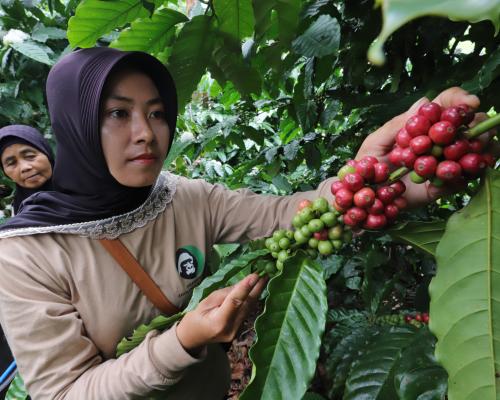 11/29/2024News
11/29/2024NewsHarvesting Change: The Women Revitalizing Delima Village Through Coffee
11/29/2024NewsHarvesting Change: The Women Revitalizing Delima Village Through Coffee
In Delima Village, Jambi, a women’s group transforms livelihoods and landscapes by embracing coffee farming. Supported by the FZS agroforestry program, they’ve replaced monoculture oil palms with coffee, mahogany, and native trees. Beyond income, their efforts restore biodiversity, empower their community, and sustain the Bukit Tiga Puluh ecosystem.






